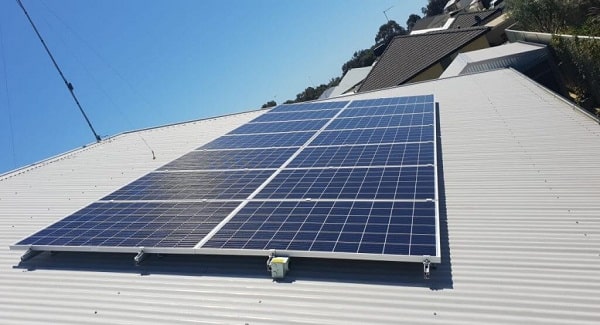Powering Up With Solar Panels: Elevating Homes With Meticulous Solar Panel Installation

Solar panels have emerged as a popular and impactful solution for homes devoted to decreasing their carbon footprint and cutting energy expenses in an age of worldwide movement towards sustainable energy sources. Solar panels Mandurah transform renewable solar energy into electricity by harnessing the power of sunshine, providing a clean and environmentally acceptable alternative to traditional energy sources. This environmentally aware investment benefits the environment and is financially sensible since it often results in lower power costs and possible government subsidies.
Solar technology is key to sustainable living, enabling homes to transition to cleaner, more eco-friendly energy alternatives. This post explores the benefits of solar panel installation and the careful introduction of this renewable energy source into homes.
Understanding Solar Panels
Solar panels are sophisticated devices that turn sunlight into power. These solar-cell-based panels transform sunlight into electrical energy. Each solar cell receives photons from sunshine and turns them into electric current. PV panels, made from semiconductor materials like silicon, generate direct current (DC) electricity that can be converted into alternating current (AC) for residential and commercial use, offering a clean and sustainable energy solution for increasing energy needs.
Harnessing Solar Energy
The solar panel process starts with the solar cells absorbing sunlight. Electrons are excited when sunlight contacts the semiconductor material inside solar cells, causing them to move and produce direct current (DC) power. This direct current power, consisting of a single-direction flow of electrons, is subsequently processed by an inverter.
The inverter is critical because it converts direct current (DC) power into alternating current (AC), the common type of energy used in household and commercial electrical systems. This conversion is required since most houses and businesses utilise alternating current (AC). When the electricity is changed, it is ready to interact with existing electrical systems, allowing the gathered solar energy to power lights, appliances, and other electrical devices in homes and businesses.
Benefits of Solar Panel Installation
Installing solar panels provides many home advantages, ranging from financial savings to environmental effects.
Cost Savings
Solar panel installation provides a compelling benefit by significantly lowering power expenditures. The ability to produce power from solar panels reduces or eliminates reliance on traditional utility suppliers, resulting in considerable long-term financial advantages. By using solar energy, households, and companies contribute to environmental sustainability and benefit economically from lower long-term power costs. This trend towards energy self-sufficiency helps people and organizations take control of their energy use, promoting budgetary restraint and a more sustainable approach to generating power.
Environmental Impact
Solar panels are vital in environmental stewardship, reducing carbon emissions and ecological impacts. They harness clean, renewable energy from the sun, promoting a sustainable future and reducing dependence on fossil fuels, a major greenhouse gas source.
Individuals may reduce their carbon footprint by switching to solar power, but it also develops a larger commitment to greener energy practices. Adopting solar technology is a concrete and significant step towards environmental conservation, coinciding with worldwide efforts to prevent climate change and build a greener, more sustainable planet.
Energy Independence
Solar panel installation provides homes with a deep feeling of energy independence. Homeowners who generate their power lessen their sensitivity to swings in energy pricing and supply while obtaining more control over their energy usage. This self-sufficiency protects people from the uncertainties of external forces, providing a dependable and long-term power supply.
When homeowners use solar energy, they help the environment and gain more independence and financial security. This transition towards energy independence reflects a proactive strategy, allowing people to manage their energy demands effectively while minimising reliance on traditional energy sources and developing a more robust and profitable approach to power production.
The Meticulous Installation Process
Solar panel installation is a challenging operation involving challenging careful planning and execution to achieve the best performance and lifespan.
Site Assessment
The installation starts with thoroughly evaluating the land to find the best position for the solar panels. Sun exposure, shade, and roof orientation are carefully considered to maximise energy output.
Mounting and Wiring
After determining the best placement, the solar panels are securely put on the roof or ground using specialised racking equipment. Wiring and electrical connections are methodically built to integrate the solar panels with the home’s electrical system.
Connection to the Grid
The system is normally linked to the local electrical grid once the panels have been placed and connected. This enables households to use nett metering, in which surplus power produced may be released back into the grid in exchange for credits or reimbursement.
In Summary
Finally, installing solar panels provides homeowners with a sustainable and cost-effective approach to fulfilling their energy demands. Homes may be boosted with clean, renewable energy by capturing the sun’s power, which helps homeowners financially and contributes to a healthy world. Consider the careful installation procedure to be an investment in a brighter, more sustainable future for your house and the environment.
Remember that harvesting solar energy may be used for more than just power production; it can also be used to heat water through a solar hot water system, increasing the sustainability of your house.




